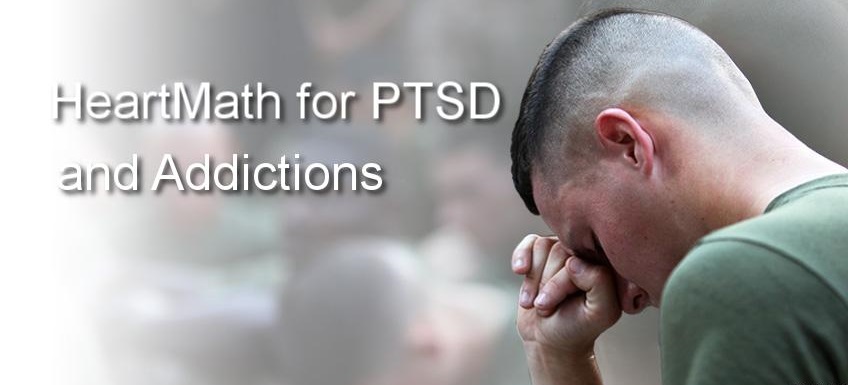CARDIAC COHERENCE AND PTSD IN COMBAT VETERANS
Jay P. Ginsberg, Ph.D.; Melanie E. Berry, M.S.; Donald A Powell, Ph.D. Alternative Therapies in Health and Medicine, A Peer-Reviewed Journal, 2010;16 (4):52-60.
For a PDF version of the complete paper, click here.
PTSD Most Common Combat Disorder
The most commonly identified psychological clinical disorder stemming from the war is post-traumatic stress disorder (PTSD), and a more general category that affects a higher percentage of combat troops is now known as combat operations stress reactions (COSR), which includes such symptoms as hypervigilance, hyperarousal, sleep disturbance, nightmares, mood disturbance, irritability, memory and concentration problems. Left untreated, such symptoms lead to more serious problems like clinical depression, substance abuse, violence and suicide.
Abstract
Background: The need for treatment of posttraumatic stress disorder (PTSD) among combat veterans returning from Afghanistan and Iraq is a growing concern. PTSD has been associated with reduced cardiac coherence (an indicator of heart rate variability [HRV]) and deficits in early stage information processing (attention and immediate memory) in different studies. However, the co-occurrence of reduced coherence and cognition in combat veterans with PTSD has not been studied before.
Primary Study Objective: A pilot study was undertaken to assess the covariance of coherence and information processing in combat veterans. An additional study goal was assessment of effects of HRV biofeedback (HRVB) on coherence and information processing in these veterans.
Methods/Design: A two-group (combat veterans with and without PTSD), pre-post study of coherence and information processing was employed with baseline psychometric covariates.
Setting: The study was conducted at a VA Medical Center outpatient mental health clinic.
Participants: Five combat veterans from Iraq or Afghanistan with PTSD and five active-duty soldiers with comparable combat exposure who were without PTSD.
Intervention: Participants met with an HRVB professional once weekly for 4 weeks and received visual feedback in HRV patterns while receiving training in resonance frequency breathing and positive emotion induction.
Primary Outcome Measures: Cardiac coherence, word list learning, commissions (false alarms) in go—no go reaction time, digits backward.
Results: Cardiac coherence was achieved in all participants, and the increase in coherence ratio was significant post-HRVB training. Significant improvements in the information processing indicators were achieved. Degree of increase in coherence was the likely mediator of cognitive improvement.
Conclusion: Cardiac coherence is an index of strength of control of parasympathetic cardiac deceleration in an individual that has cardinal importance for the individual’s attention and affect regulation.
ADDICTION CENTERS CURRENTLY USING HEARTMATH TOOLS:
HEARTMATH AT THE SANCTUARY – HeartMath sessions are conducted with simple, user-friendly technology through which our clients can access, monitor and take control of their internal states. They learn to recognize chaotic internal states and to shift quickly into greater internal coherence, or more optimal overall functioning, with full access to higher brain functions, and an increased sense of well-being. http://sanctuary.net/a-coherent-life-at-the-heart-of-sustainable-addiction-recovery/
FREEMAN RECOVERY CENTER- At Freeman Recovery Center, we incorporate HeartMath techniques into our psycho-educational groups with a licensed HeartMath provider. HeartMath tools enable people to live more rewarding, healthy, and productive lives personally, professionally, and in benefit to those around them. http://www.freemanrecoverycenter.com/group-therapy/
THE CAMP RECOVERY CENTER- The Camp is now proud to announce integrating HeartMath into the teen program. Staff members have reported the following benefits of HeartMath: Provides a tool to cope with emotional stress, insomnia, grief, anger and other negative thoughts, helps client’s self-sooth and cope with cravings, and gives clients a chance to play, feel good and succeed. https://www.heartmath.com/wp-content/uploads/2014/05/The-Camp-Recovery-Center-emWave.pdf
A Therapist’s Guide Using HeartMath® Tools with Clients with PTSD and Addictions: http://www.heartmathbenelux.com/doc/s-gilman-therapist-guide.pdf

